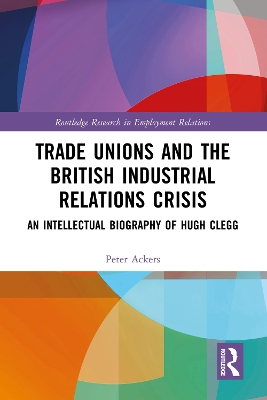Routledge Research in Employment Relations
1 total work
Hugh Clegg was a founding figure of post-war British Industrial Relations, the forerunner of Employment Relations and Human Resource Management, as taught in most Business Schools today. He defined ‘industrial democracy’ as collective bargaining with trade unions, laid the foundations for the pluralist approach to Industrial Relations, was a key figure in the post-war social sciences and a major public policy player. More widely, he was an important figure in the Cold War social democratic academic left, who broke with his earlier Communism to champion free trade unions in a liberal democratic society. He also produced the major Oxford University Press trade union history. This book aims to understand the politics and industrial relations of the post-war period in Britain (in which trade unions were central) through the life of a key public intellectual. It will help readers understand the political and social science roots of contemporary Employment Relations and Human Resource Management through a deep historical study of Clegg’s life and times, in the context of his post-war social democratic generation. It illustrates how the failures of post-war industrial relations led to Thatcherism. Current Employment Relations academics and public policy can learn much from this history, making it of value to researchers, students, and academics in the fields of Human Resource Management and business and management history.
